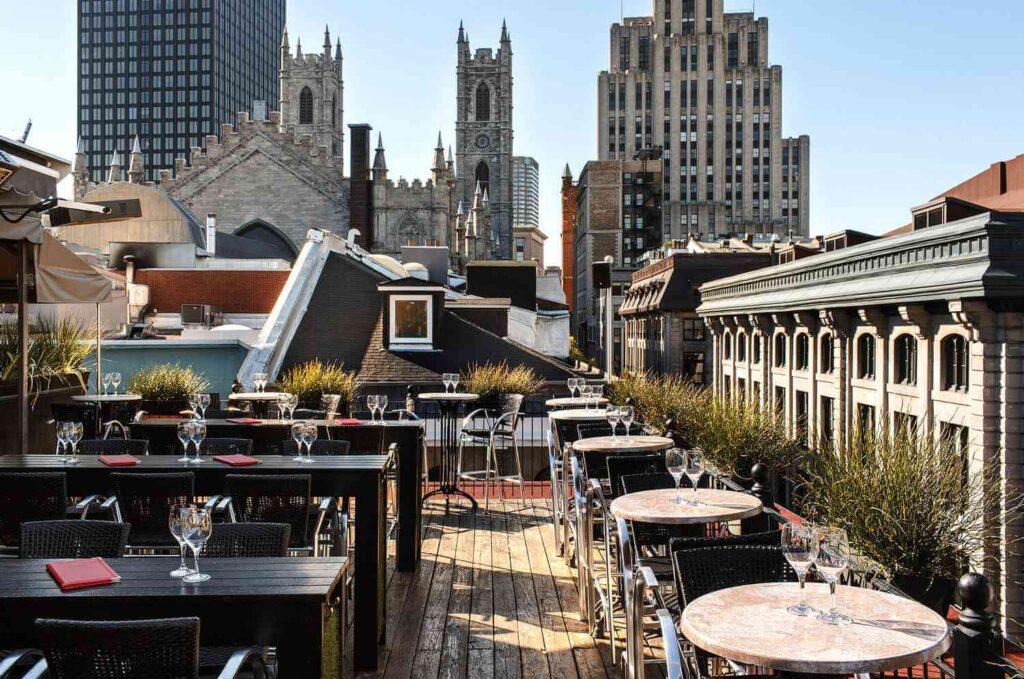
- Explore the Best Cities for Airbnb in Quebec, Canada.
- Check out Is Income Earned from Airbnb Subject to Taxation?
- Read more How to Launch a Montreal Airbnb Business
- Important The Framework of Regulation Governing Airbnb in Montreal
- Unlock the Secrets: The Top 5 Essential Dates Every Airbnb Host in Montreal Must Know
- Montreal Premium Neighbourhoods for Airbnb
Introduction
Welcome to the comprehensive guide on navigating Airbnb income tax in Montreal. Airbnb has become a popular choice for homeowners looking to make some extra income. However, this income is not tax-free, and it’s crucial to understand the tax implications to avoid trouble with the Canada Revenue Agency (CRA). This guide will walk you through everything you need to know.

Airbnb in Montreal
The Growth of Airbnb in Montreal
The presence of Airbnb in Montreal has expanded significantly in recent years, with hosts earning a substantial income. This income growth brings forth the critical issue of income tax.
Regulations and Legalities
Airbnb hosts in Montreal must comply with specific regulations.
Zoning Laws and Permits
Firstly, hosts need to understand the zoning laws of their municipality. Certain areas in Montreal are restricted to short-term rentals. It’s important to verify if your property is in a permitted zone for operating a short-term rental. If it is, obtaining a permit from the city is usually the next step. The permit is a legal requirement in Montreal, and hosts need to display it within their listings.
Safety Requirements
Airbnb hosts must also ensure their properties meet all safety and health standards. This includes installing smoke detectors, providing a first-aid kit, maintaining clean premises, and ensuring the structural integrity of the building.
Insurance
Insurance is another critical aspect. Hosts need to have appropriate insurance coverage that includes short-term rentals. Regular homeowners’ insurance may not cover liabilities arising from Airbnb rentals, so hosts should review their policy or consult with their insurance provider to ensure proper coverage.
Reporting Income
The most crucial regulation, however, is paying income tax. All income generated through Airbnb must be reported to the Canada Revenue Agency (CRA) during tax filing. This includes the rental amount and any other additional fees charged to guests. Proper record-keeping of this income, as well as any related expenses, is crucial to accurately reporting earnings and calculating the tax payable.
Failure to adhere to these regulations can lead to serious repercussions, ranging from fines and penalties to suspending your Airbnb listing. Hence, it’s essential for hosts to be fully aware of and comply with all local and tax laws to successfully run an Airbnb in Montreal
Understanding Income Tax
Basic Principles of Income Tax
Income tax is a tax levied on the income of individuals or organizations. In the context of Airbnb, any income you earn from renting your property is taxable.
Applicability to Airbnb Income
The CRA considers income from Airbnb as rental income, subjecting it to income tax. You are required to report this income on your tax return.

The Process of Tax Calculation
Identifying Income
All money received from guests, including the rental price, cleaning fees, and any additional charges, constitutes your Airbnb income.
Deductible Expenses
Several expenses related to maintaining and renting your property are tax-deductible. These deductions can help lower your overall taxable income.
Reporting and Paying Taxes
Federal Tax: All Airbnb hosts in Canada, including Montreal, are required to report their income to the Canada Revenue Agency (CRA). If this income is considered rental income, it must be reported on Form T776, Statement of Real Estate Rentals. If it’s considered self-employment business income (for instance, if you provide additional services like meals or cleaning), it should be reported on Form T2125, Statement of Business or Professional Activities.
Provincial Tax: In addition to federal taxes, Quebec residents also have to report their income to Revenu Québec, the provincial tax authority. Airbnb income is included in this and should be reported on form TP-80-V, Business or Professional Income when filing provincial taxes.
Common Misconceptions
Income Tax vs Sales Tax
Airbnb hosts must understand the difference between income tax and sales tax. Income tax is levied on your rental income, while sales tax is collected from guests and remitted to the government.
The Role of CRA
The CRA does not consider Airbnb a hobby. It is a business operation, and hosts are seen as operators running a commercial activity. Therefore, hosts are obligated to comply with all CRA regulations.

Tips for Managing Airbnb Income Tax
Keep Detailed Records
Good record-keeping can help you track your income and expenses, making it easier to report your Airbnb income.
Seek Professional Advice
Navigating tax regulations can be intricate and confusing. Thus, reaching out to a professional tax advisor or accountant can be greatly beneficial. These professionals can clarify your tax responsibilities and help you identify possible tax deductions linked to your Airbnb operation.
For tailored guidance and support, consider reaching out to HeartHomes. As a company specializing in Airbnb management, HeartHomes has a deep understanding of the complexities surrounding Airbnb tax obligations. They can provide professional advice and solutions designed to help you navigate the maze of Airbnb income tax regulations in Montreal effectively.
Impact of Non-compliance
Penalties and Fines
Failing to comply with income tax regulations can result in penalties and fines. The CRA is becoming increasingly vigilant about Airbnb income, making it crucial for hosts to accurately report their earnings and pay their due taxes.
Conclusion
Navigating Airbnb income tax in Montreal can seem daunting. However, by understanding the principles of income tax, accurately calculating and reporting your earnings, and seeking professional advice, you can manage your obligations effectively. Remember, tax compliance isn’t just about avoiding penalties; it’s a crucial part of running a successful and sustainable Airbnb business.
Explore